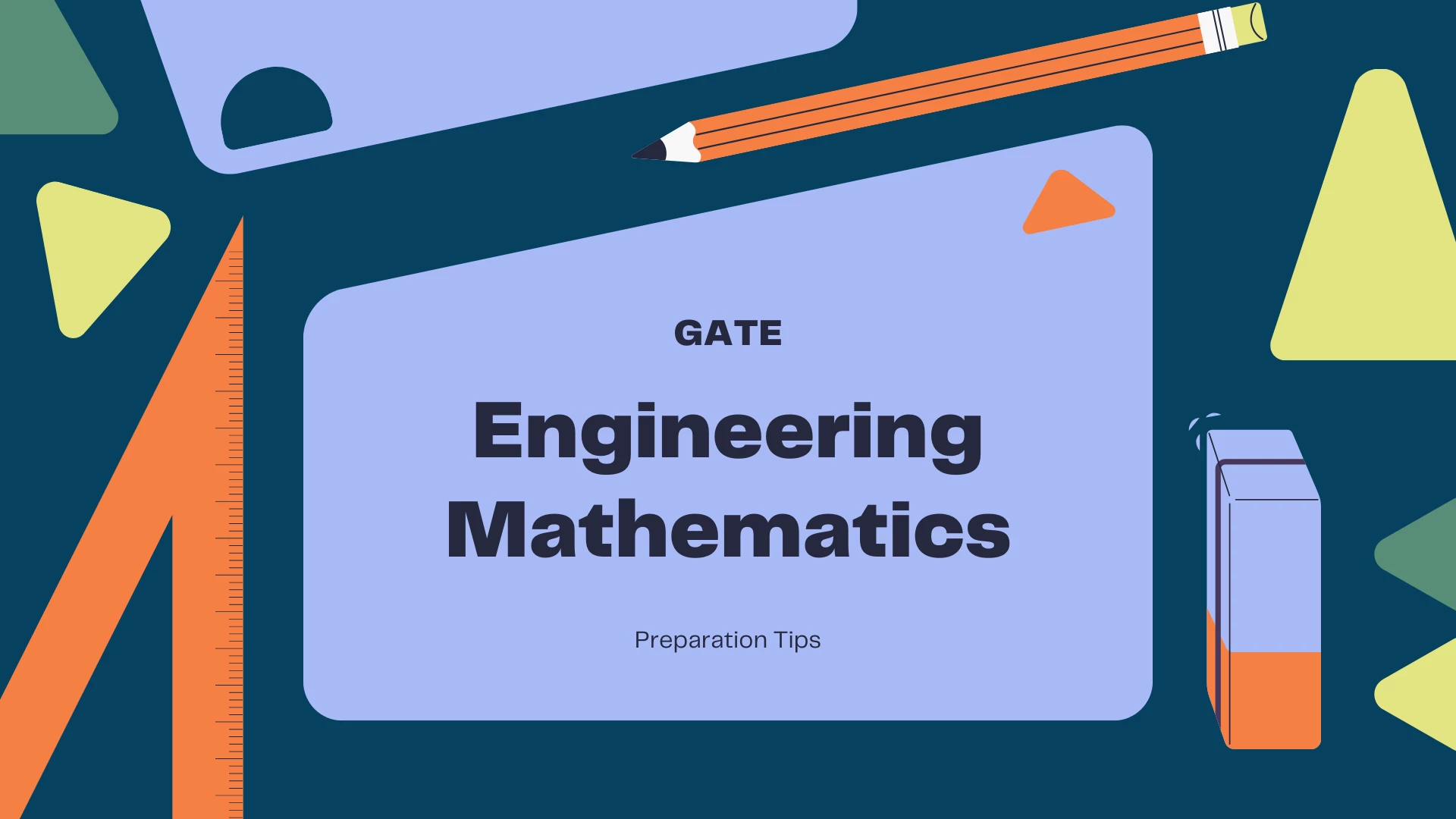Engineering Mathematics may be the most crucial factor in your GATE exam, as it helps you to establish a foundation for solving problems in almost all technical disciplines. A firm understanding of the GATE Engineering Mathematics preparation tactics helps you not only to get marks in the maths section, but also increases your knowledge in core subjects such as Signals, Control Systems and Structural Analysis.
Most of the toppers find this to be a high-scoring section because there are very few concepts to learn, and the same concepts repeat again and again in the GATE Engineering Mathematics section. After building a good basis, start with the basics of Linear Algebra, Calculus, Probability, and Differential Equations. Make sure your grasp of the concepts is strong before trying complex problems. Regular practice and revision of formulas will certainly help you to build speed and accuracy.
Solving previous year GATE questions is extremely helpful for seeing how the concepts are applied. Also, use your time wisely, spend extra time on the topics that are worth more marks and refer to your quick notes regularly. With regular practice, GATE Engineering Mathematics preparation level can be enhanced with great speed.
How to Build a Strong Foundation in Engineering Mathematics for GATE
Refer to the following table to check out some of the most effective GATE Engineering Mathematics preparation tips.
Focus Area | What to Do | Goal |
Basics & Fundamentals | Revise NCERT/undergrad notes, clear core concepts of Algebra, Calculus, Probability | Strong foundation in basics |
Concept Learning | Study standard reference books, watch online lectures, make short notes | Deeper understanding of concepts |
Practice | Solve PYQs, chapter-wise questions, and topic-wise problem sets | Improve accuracy and application |
Mock Tests | Attempt sectional tests and full-length mocks | Build speed, confidence, and exam stamina |
Revision | Prepare formula sheets, revise notes regularly, reattempt weak areas | Quick recall and strong grip on topics |
Analysis | After every test, analyze mistakes and focus on weak zones | Continuous improvement |
Best Books to Prepare for Engineering Mathematics for GATE
- Higher Engineering Mathematics by B.S. Grewal
- Advanced Engineering Mathematics by Erwin Kreyszig
- Engineering Mathematics for GATE by Made Easy Publications
- Engineering Mathematics for GATE and ESE by ACE Academy
- GATE Engineering Mathematics by Arihant Publications
- Probability, Statistics and Random Processes by T. Veerarajan
- Schaum’s Outline of Linear Algebra by Seymour Lipschutz
- Schaum’s Outline of Advanced Calculus by Robert Wrede & Murray Spiegel
Importance of Engineering Mathematics for GATE 2026
Engineering Mathematics for GATE, is one of the essential and high-scoring sections of GATE. It carries a weightage of 13 to 15 marks, which can make a tremendous difference in your GATE 2026 rank and score. GATE Engineering Mathematics section consists of fundamental topics, including Linear Algebra, Calculus, Differential Equations, Probability, Numerical Methods, and Complex Analysis.
Some of these topics will appear directly selected in the exam, while the others will reinforce concepts needed in technical subject topics like Signals and Systems, Control Systems and Digital Logic. As these problems are mostly concept-based and repetitive, students can easily score well in this section of the exam by practicing consistently and having a strong baseline knowledge. Thus, this area of the subject is an area of relative focus to your future exam guaranteed marks.
Engineering Mathematics Syllabus for GATE
The following table consists of all the crucial topics of the GATE Engineering Mathematics paper.
Topic | Key Areas Covered |
Linear Algebra | Matrices, determinants, systems of linear equations, eigenvalues, eigenvectors |
Calculus | Limit, continuity, differentiability, mean value theorem, maxima & minima, partial derivatives, multiple integrals, line/surface/volume integrals |
Vector Calculus | Gradient, divergence, curl, Gauss theorem, Green’s theorem, Stokes’ theorem |
Differential Equations | First order ODEs, higher-order linear ODEs, Cauchy & Euler equations, initial & boundary value problems |
Complex Analysis | Analytic functions, Cauchy-Riemann equations, contour integration, Taylor & Laurent series, residue theorem |
Probability & Statistics | Mean, median, mode, standard deviation, random variables, probability distributions (Binomial, Poisson, Normal), correlation & regression |
Numerical Methods | Solutions of equations, numerical integration (Trapezoidal & Simpson’s rule), numerical solutions of ODEs (Euler & Runge-Kutta methods) |
Transforms | Fourier series, Fourier transform, Laplace transform, Z-transform |
Note: Engineering Mathematics is one of the most crucial and scoring segments in GATE contributing to about 12 to 15 marks in almost all papers. If aspirants gain a conceptually sound understanding and regularly practice numerical problems and GATE previous year questions, they will be a step ahead. Given the primary nature of these topics and the relationship to core engineering subjects, being proficient in Engineering Mathematics will improve aspirants' GATE scores and also help in their total technical knowledge.

